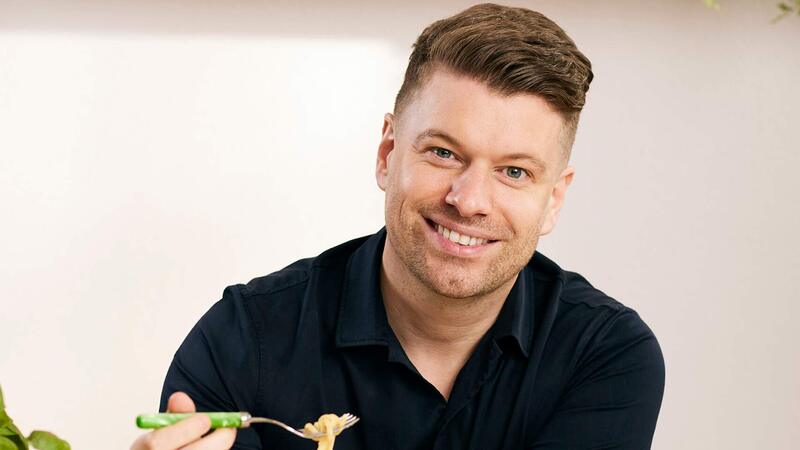You are viewing your 1 free article this month. Login to read more articles.
Mike Carey's new direction
Melanie is a very special little girl; she is The Girl with All the Gifts. Dr Caldwell calls her “our little genius” but to Sergeant Parks she is a monster, “a little roach”. Melanie loves school; every morning, she waits in her cell to be strapped into a wheelchair and taken to class – she thinks the soldiers don’t like her, she jokes that she won’t bite, but they don’t ever laugh.
So who is Melanie? In The Girl with All the Gifts, a mind-bending, post-apocalyptic zombie-thriller filled with tension and horror, Melanie makes for a fascinating and moving protagonist who, at the end of the novel, becomes “a touchstone for all the other characters,” says Carey. “Immediately before writing this book, I co-wrote two books with my wife and daughter and that pushed me out of my comfort zone in a good way, and made me much more experimental with voice. Melanie’s voice, which in many ways is the novel, would not have happened if not for that experience.”
The Girl with All the Gifts
The Girl with All the Gifts is based on a short story Carey wrote for an anthology of horror stories set in the classroom called “Iphigenia in Aulis”, “but I knew there was more I could do with Melanie and her world. She is such a focal character and when I was expanding the cast I always had in mind how those characters would reflect back on her. The key to her character is that she is a good girl, she’s extremely big hearted, generous and open – she is kind of like Frankenstein’s monster in that respect; there is no harm in him, and he only becomes a force for evil when he is mistreated. We see the world over Melanie’s head at the start of the novel, but slowly she comes to have a fuller understanding of the world than the people around her.”
Alongside Melanie, The Girl with All the Gifts is packed with a bevy of imperfect adult characters. Carey says: “I always had a huge admiration for works of fiction that don’t leave anyone else behind, that give as much respect and imagination to the supporting cast as they do to the lead. Terry Pratchett is a wonderful example of that – he finds an emotional pay off for every character – and I wanted to show all of these very flawed people and make the reader want to forgive them just a little bit. I didn’t want any characters that were just plot engines and I think that comes from writing comics for so long; you become dissatisfied if any of the characters are cardboard cut-outs.”
The emotional core of the novel is the love between Melanie and her favourite teacher Helen Justineau, “that sense of affection and obligation, the fact that Justineau comes to love her against her will. That’s the catalyst for everything else that happens in the book, so their relationship was very interesting to write. With all of the four adults in the story, the interrelations between them are peripheral; it is the relationships they all have with Melanie that are key.”
The Devil You Know
Carey’s first novel, The Devil You Know, was published in 2006 and was followed by four more books in the Felix Castor series: Vicious Circle, Dead Men’s Boots, Thicker Than Water and The Naming of the Beasts. Renowned in the comic world, he has written an impressive number of graphic novels and comic books for some of the biggest names in the industry. He joined 2000 AD at the start of his career, where he created the original series Th1rt3en and Carver Hale.
For Vertigo, an imprint of DC Comics, he went on to write the Eisner Award-nominated comic book Lucifer, as well as issues of Hellblazer, and for Marvel Comics he has written issues of X-Men: Legacy and Ultimate Fantastic Four.
Carey says that, “writing comics taught me about structure. I spent a lot of my teens and early 20s writing things that I thought were novels, but they really weren’t, they were shapeless bags of stories. The thing about writing comics is that a rigid structure is built in. You have 20 pages and you have to get to a cliffhanger within that, so you budget everything, you become a miser. After writing comics for seven to eight years, when I came back to writing prose I felt a heady rush of freedom. You get a bit drunk on power with all those blank pages.
“I loved comics growing up, I learnt to read on them. It’s a joy to me to create them. I wrote X-Men for years and as a kid I loved the X-Men, it was one of my favourite books, and to be able to write something that was a part of your childhood is a thrill. That’s how we all got into this world, by being fan boys.”
Interestingly, Carey also wrote the screenplay for a film adaptation of The Girl with All the Gifts at the same time as writing the novel and he says this was a challenging process, “writing them hand in hand while also thinking of different narrative solutions. The movie of the book is never the book and I had to keep that in mind.”
All the rage
The Girl with All the Gifts sees an England overrun with “hungries”, and Carey says he “went back and forth on whether to use ‘the Z-word’ or not. But I decided just to refer to the hunger pathogen instead. In the short story the pathogen was a virus and in the novel it was a fungus, because in between writing them both I watched a David Attenborough programme on the cordyceps fungus [a killer fungus that invades the bodies of insects to grow], and I thought to myself, ‘this is just too good’.”
Post-apocalyptic thrillers are all the rage at the moment and for Carey it is because they actually offer “something really comforting. Once the world ends, all your worries about your mortgage and your job get shunted off to the sideline. We use genre fiction to tell us what we are; I think with all genre fiction, where it becomes great is when it is saying something about the world we are in.
“Paradoxically, as the world’s various crises worsen we take more refuge in alternate worlds. I’ve never seen sci-fi as escapism, but I think horror is. I don’t believe there will be an apocalypse that will sweep us off the earth but I think our civilisation has a sell-by date. There are only so many fossil fuels left in the ground, and it’s not even energy, it’s plastics-—what are we going to do when there is nothing to make plastic out of?”
The Girl With All the Gifts by Mike Carey is published on 14th January by Orbit. Photo credit Charlie Hopkinson.













